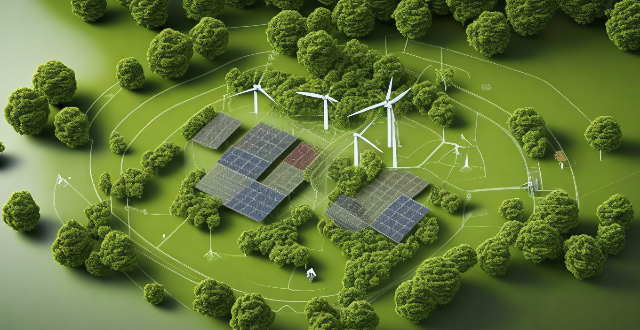The rise of renewable energy has significantly influenced consumer preferences and buying habits, including increased awareness and interest in sustainability, changes in purchasing decisions towards energy-efficient products and electric vehicles, support for green initiatives, a shift towards renewable energy service providers, and adoption of smart technology.

The Impact of Renewable Energy on Consumer Preferences and Buying Habits
The rise of renewable energy has significantly influenced consumer preferences and buying habits in various ways. Here are some key points to consider:
1. Increased Awareness and Interest in Sustainability
- Environmental Concerns: With growing awareness about climate change, consumers are more concerned about the environmental impact of their choices. They prefer products and services that have a lower carbon footprint.
- Sustainable Brands: Many consumers now actively seek out brands that prioritize sustainability and use renewable energy sources in their operations. This shift in preference has led to an increase in demand for eco-friendly products.
2. Changes in Purchasing Decisions
- Energy Efficiency: Consumers are increasingly looking for energy-efficient appliances and technologies when making purchasing decisions, as they understand the long-term cost savings and reduced environmental impact associated with such products.
- Electric Vehicles (EVs): The growth of renewable energy has also fueled the rise of electric vehicles. Consumers are showing a greater interest in buying EVs due to their potential to reduce greenhouse gas emissions and because they can be powered by renewable energy sources.
3. Support for Green Initiatives
- Green Investments: There is a trend among consumers to invest in companies and initiatives that focus on renewable energy and sustainability. This includes investing in green bonds or supporting crowdfunding campaigns for renewable energy projects.
- Community Energy Programs: Consumers are showing interest in participating in community energy programs like solar panels installations or wind farms, which allows them to directly contribute to the generation of renewable energy.
4. Shift Towards Renewable Energy Service Providers
- Energy Suppliers: Consumers are increasingly choosing energy suppliers that offer renewable energy plans, even if it means paying slightly higher rates, as they perceive these options to be more ethical and sustainable.
- Green Tariffs: Some consumers opt for green tariffs offered by energy suppliers, wherein a specified portion of their energy consumption is sourced from renewable resources.
5. Adoption of Smart Technology
- Home Automation: With the advancement of smart technology, consumers are adopting home automation systems that can optimize energy usage, reducing waste and promoting efficiency.
- Smart Grids: The development of smart grids allows consumers to have more control over their energy consumption and make informed decisions about when to use power based on renewable energy availability and pricing.
In summary, the rise of renewable energy has led to a significant shift in consumer preferences and buying habits, with individuals showing increased interest in sustainable products, support for green initiatives, and a willingness to adapt to new technologies that promote energy efficiency and conservation. As renewable energy continues to grow, these trends are likely to become even more pronounced in the future.